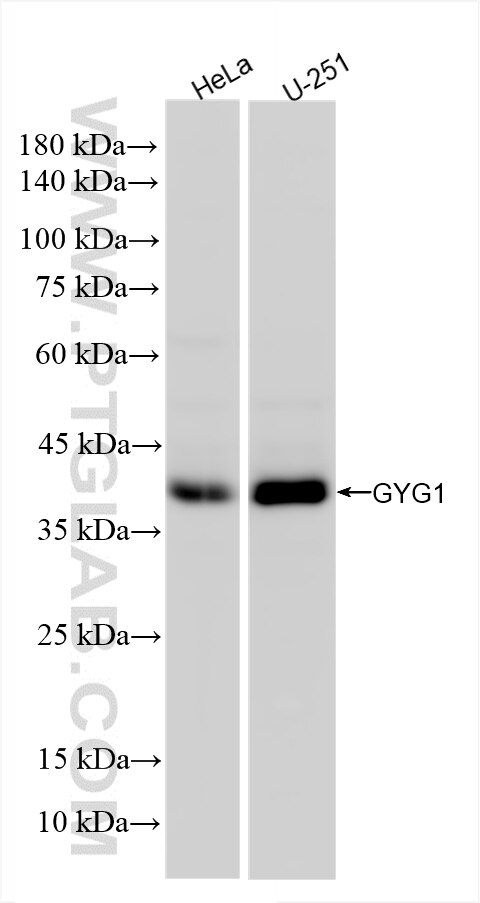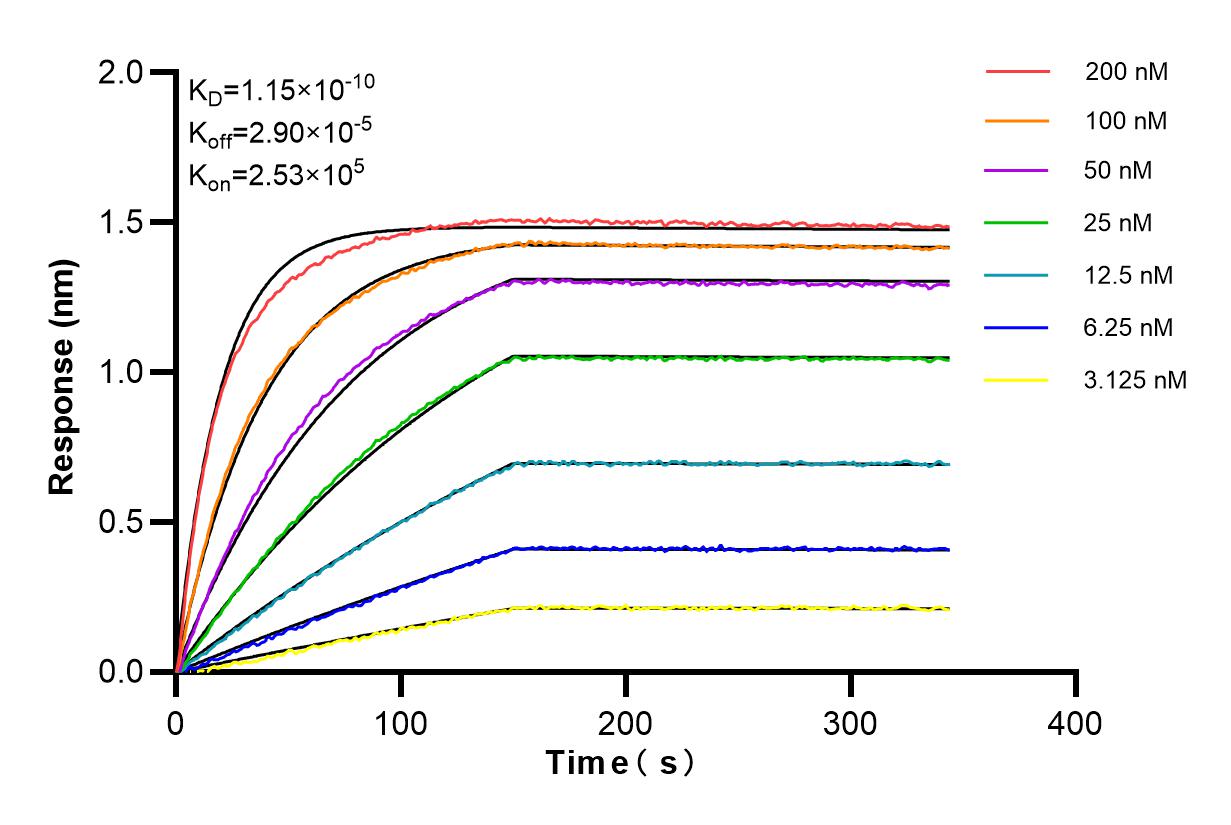Tested Applications
| Positive WB detected in | HeLa cells, U-251 cells |
Recommended dilution
| Application | Dilution |
|---|---|
| Western Blot (WB) | WB : 1:1000-1:6000 |
| It is recommended that this reagent should be titrated in each testing system to obtain optimal results. | |
| Sample-dependent, Check data in validation data gallery. | |
Product Information
86056-1-RR targets GYG1 in WB, ELISA applications and shows reactivity with human samples.
| Tested Reactivity | human |
| Host / Isotype | Rabbit / IgG |
| Class | Recombinant |
| Type | Antibody |
| Immunogen |
CatNo: Ag3583 Product name: Recombinant human GYG1 protein Source: e coli.-derived, PGEX-4T Tag: GST Domain: 1-331 aa of BC031096 Sequence: DQAFVTLTTNDAYAKGALVLGSSLKQHRTTRRLVVLATPQVSDSMRKVLETVFDEVIMVDVLDSGDSAHLTLMKRPELGVTLTKLHCWSLTQYSKCVFMDADTLVLANIDDLFDREELSAAPDPGWPDCFNSGVFVYQPSVETYNQLLHLASEQGSFDGGDQGILNTFFSSWATTDIRKHLPFIYNLSSISIYSYLPAFKVFGASAKVVHFLGRVKPWNYTYDPKTKSVKSEAHDPNMTHPEFLILWWNIFTTNVLPLLQQFGLVKDTCSYVNVEDVSGAISHLSLGEIPAMAQPFVSSEERKERWEQGQADYMGADSFDNIKRKLDTYLQ Predict reactive species |
| Full Name | glycogenin 1 |
| Calculated Molecular Weight | 350 aa, 39 kDa |
| Observed Molecular Weight | 39 kDa |
| GenBank Accession Number | BC031096 |
| Gene Symbol | GYG1 |
| Gene ID (NCBI) | 2992 |
| Conjugate | Unconjugated |
| Form | Liquid |
| Purification Method | Protein A purification |
| UNIPROT ID | P46976 |
| Storage Buffer | PBS with 0.02% sodium azide and 50% glycerol, pH 7.3. |
| Storage Conditions | Store at -20°C. Stable for one year after shipment. Aliquoting is unnecessary for -20oC storage. 20ul sizes contain 0.1% BSA. |
Background Information
The GYG1 gene encodes glycogenin-1, a core protein in muscle glycogen particles. GYG1 is a glycosyltransferase that forms a short glucose polymer of approximately 10 glucose residues by autoglucosylation (PMID: 25272951 ). Cardiomyopathy and muscle weakness associated with muscle glycogen depletion can also be caused by impaired priming of glycogen synthesis due to inactivation of muscle glycogenin (glycogenin-1) (PMID: 20357282).
Protocols
| Product Specific Protocols | |
|---|---|
| WB protocol for GYG1 antibody 86056-1-RR | Download protocol |
| Standard Protocols | |
|---|---|
| Click here to view our Standard Protocols |






